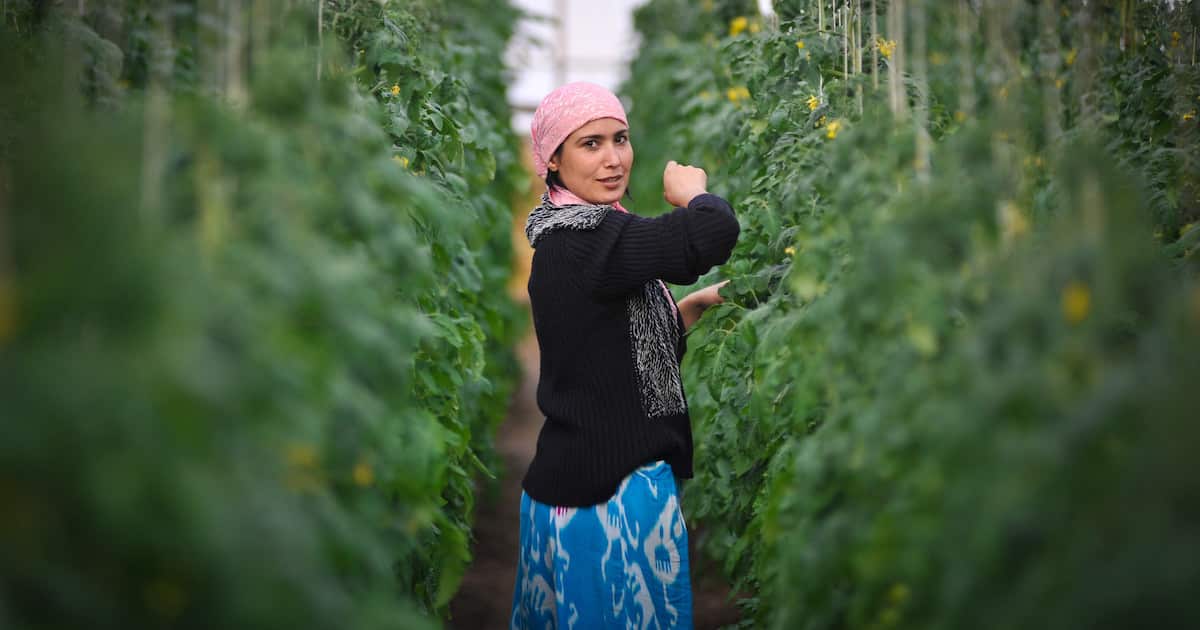Why Sustainable Farming Is More Important Now Than Ever

By changing your relationship to how food is made, you can rewrite the story of your life. In doing so, you may renew civilization and save it from collapse—by reversing soil degradation processes caused by industrial farming practices. People who are into sustainable farming are doing just that while feeding themselves and others. They are carving out an unlikely path of reclaiming land, nourishing ecosystems, and recentering the stories of oppressed peoples.
What Is Sustainable Farming?
Sustainable farming is a broad, umbrella term for growing food using methods that will also nurture society, the environment, and the economy. It is an alternative to mainstream, industrial agriculture practices. Sustainable farmers seek to support community health and well-being and to work with nature, while still being profitable businesses—though farms can also be run as non-profits or recreational projects.
Why Is Sustainable Farming Important?
Sustainable farming is important because it offers a solution to the problems caused by the way most of our food is grown today. Today’s industrial farming methods, many stemming from the Green Revolution of the 1950s and 1960s, are depleting our natural resources through monocultures and the overuse of pesticides and fertilizers, among other practices, while leaving people with unequal access to food and nutrition around the world.
The goal of sustainable agriculture is to meet society’s food and textile needs in the present without compromising the ability of future generations to meet their own needs.
Practitioners of sustainable agriculture seek to integrate three main objectives into their work: a healthy environment, economic profitability, and social and economic equity. Every person involved in the food system—growers, food processors, distributors, retailers, consumers, and waste managers—can play a role in ensuring a sustainable agricultural system.
There are many practices commonly used by people working in sustainable agriculture and sustainable food systems. Growers may use methods to promote soil health, minimize water use, and lower pollution levels on the farm. Consumers and retailers concerned with sustainability can look for “values-based” foods that are grown using methods promoting farmworker wellbeing, that are environmentally friendly, or that strengthen the local economy. And researchers in sustainable agriculture often cross disciplinary lines with their work: combining biology, economics, engineering, chemistry, community development, and many others. However, sustainable agriculture is more than a collection of practices. It is also process of negotiation: a push and pull between the sometimes competing interests of an individual farmer or of people in a community as they work to solve complex problems about how we grow our food and fiber.
Topics in sustainable agriculture
- Addressing Food Insecurity
- Agritourism
- Agroforestry
- Biofuels
- Conservation Tillage
- Controlled Environment Agriculture (CEA)
- Cooperatives
- Cover Crops
- Dairy Waste Management
- Direct Marketing
- Energy Efficiency & Conservation
- Food and Agricultural Employment
- Food Labeling/Certifications
- Food Waste Management
- Genetically Modified Crops
- Global Sustainable Sourcing of Commodities
- Institutional Sustainable Food Procurement
- Biologically Integrated Farming Systems
- Integrated Pest Management (IPM)
- Nutrition & Food Systems Education
- Organic Farming
- Precision Agriculture (SSM)
- Soil Nutrient Management
- Postharvest Management Practices
- Technological Innovation in Agriculture
- Urban Agriculture
- Value-Based Supply Chains
- Water Use Efficiency
- Water Quality Management
- Zero-Emissions Freight Transport
Directory of UC Programs in Sustainable Agriculture
The UC Programs | Sustainable Agriculture and Food Systems directory is a catalog of UC's programmatic activities in sustainable agriculture and food systems. The directory can be searched and sorted by activities and topic areas.



.JPG)




0 Comment to "Sustainable Agriculture and Farming"
Post a Comment